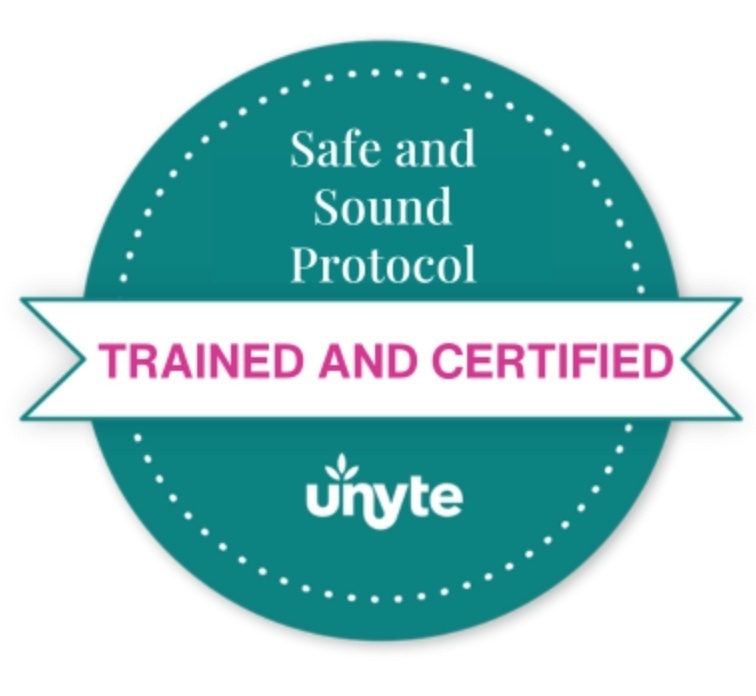Safe and Sound Protocol (SSP)
When your nervous system has been stuck in survival mode—because of trauma, chronic stress, or overwhelm—it can feel impossible to fully relax, feel present in your relationships, or even feel safe in your own body.
The Safe and Sound Protocol (SSP) is a gentle, evidence-based intervention that goes beyond talk therapy to calm the nervous system and support emotional regulation from the bottom up, so you can begin to feel safer, more grounded, and better able to engage in life.
At New Moon Psychotherapy, we offer SSP as part of our commitment to trauma-focused care, helping our clients move beyond insight alone and into felt safety and connection.
What Is the Safe and Sound Protocol (SSP) and How Does It Help with Nervous System Regulation in Toronto?
 SSP is a five-hour auditory intervention developed and patented by Dr. Stephen Porges, the neuroscientist behind Polyvagal Theory—often called “the science of feeling safe.”
SSP is a five-hour auditory intervention developed and patented by Dr. Stephen Porges, the neuroscientist behind Polyvagal Theory—often called “the science of feeling safe.”
This isn’t just music. SSP uses specially filtered sound to gently stimulate the vagus nerve, helping shift the body out of fight-or-flight and into a state of safety, calm, and connection. It acts as a non-invasive, acoustic form of vagal nerve stimulation that supports greater resilience and emotional flexibility.
SSP is delivered with support from a trained therapist, remotely, and tailored to your nervous system’s pace and needs.
Over time, it can help you feel more grounded, respond to stress differently, and re-engage in relationships and daily life with greater ease.
Why Does Feeling Safe Matter?
As humans, we’re wired for connection—but feeling safe isn’t just emotional, it’s biological.
Your nervous system constantly scans the environment for cues of safety or threat—tone of voice, facial expressions, body language. If you’ve lived through trauma or chronic stress, your system may struggle to read those cues accurately, staying stuck in states of hypervigilance or shutdown even when you’re not in danger.
This can affect how you show up in relationships, how easily you bounce back from stress, and whether you feel at home in your own body.
The Safe and Sound Protocol helps recalibrate this system, so your body can more accurately detect safety and respond with calm rather than defense. That shift often opens the door to deeper healing, better relationships, and a renewed sense of self-trust.




